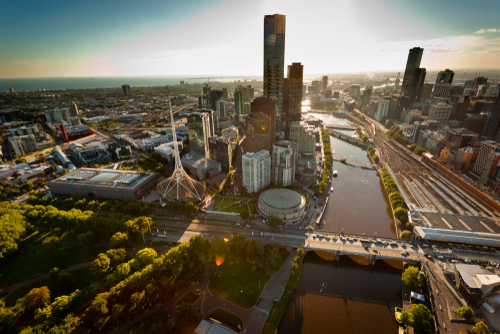Psst…There’s a Hidden Market for Six-Figure Jobs. Here’s How to Get In.
Unlisted jobs help companies skirt pay transparency laws in New York and elsewhere. Getting one requires ninja-like networking skills.
Almost every day, someone who is quietly hunting for a key hire calls Diane Hessan to ask the same question: Whom do you recommend?
Ms. Hessan, a former consulting group CEO who sits on the boards of Panera Bread, Eastern Bank and Tufts University, is one of the best-connected business figures in Boston—and something like a password keeper at a speakeasy for six-figure job seekers.
All cities have such people, and being on their radars can open hidden doors.
/
“There’s a whole back channel of conversations going on about jobs that are available,” says Ms. Hessan, adding that many of the calls she fields come from private-equity firms seeking leaders for portfolio companies.
Far from the public job boards of Indeed, LinkedIn and Monster lies another set of career opportunities—often lucrative ones—that are never posted. The volume of such openings is hard to measure; those who hire and who’ve been hired out of sight say the quality of the positions is more notable than the quantity.
Some are management roles that are currently occupied by people whom senior leaders want to push out, but not before discreetly finding replacements.
Other unlisted positions may be at venture-backed startups or relate to new corporate initiatives that, for competitive reasons, companies don’t want to advertise in view of rivals.
Executives have long relied on their professional networks and headhunters to fill these stealth roles, though the hiring game is trending toward openness. New York City this week began requiring employers to include salary ranges in job postings, and some states are poised to do the same or already have done so. Yet businesses that don’t want to tip their hands (or show employees what’s offered to newcomers) can simply do more recruiting in private channels.
A common loophole in pay transparency laws is that companies don’t have to post every job and don’t have to reveal the projected compensation for those unposted positions, says Stephanie Merabet, a labor attorney at Holland & Knight.
It is too early to know how many businesses will skirt disclosure by keeping more openings off job boards, but some likely will, says Tae-Youn Park, who researches pay transparency as an associate professor of human resource studies at Cornell University.
That means you might not learn of an exciting role until someone else gets it, unless you’re the one who comes to mind when a company wants to hire on the sly.
“You want to be on the call list of somebody who’s working to fill a job that would fit you,” says Matt Massucci, chief executive of the recruiting firm Hirewell. “The only way you do that is to stay top of mind.”
Mr. Massucci suggests devoting at least 30 minutes a week to networking, and advises a targeted approach. Make a point to introduce yourself to people who work at companies that interest you. Connect with recruiters in your field, even when you’re not actively looking for a new job. Go to conferences. Speak on panels (yes, the ones that feel like unpaid, extra work). Freshen up that headshot.
Be visible to get a job that is not.
Brian Pestana, a food industry executive, says he wasn’t interested at first when a Seattle-based recruiter asked to connect on LinkedIn this fall. He lives in Miami and wouldn’t consider relocating, so he didn’t think that networking with someone on the other side of the country would be worthwhile. But you never know, he figured.
He chatted and hit things off with the recruiter, who introduced him to Maria Elena Ibañez, chief executive of El Latino Foods in Doral, Fla., about a 15-mile drive from Miami.
Mr. Pestana joined El Latino in October as vice president of business development, a position that was never listed on any job board.
“Don’t dismiss a small opportunity because the one that seems far-fetched might be the one that works out,” he says.
Mark Goldberger started this week as head of enterprise sales at Ramp, a financial software startup in New York, after he and a recruiter initially discussed a different position with another company. He says the headhunter quickly identified him as a fit for the Ramp job, based on their previous conversations, which put him on the fast track for the job that was never posted.
His early tasks include hiring more sales representatives for his team. One position has been posted publicly, an enterprise account executive with an estimated salary of $221,000 to $260,000, but Mr. Goldberger says it’s possible that he’ll hire multiple people from a single candidate pool, and he isn’t waiting for applications to roll in.
“I’m reaching out within my network—the people that I know would be great because I’ve seen them do something similar—and I’m also going to be scouring LinkedIn,” he says.
Mr. Goldberger and other hiring managers and recruiters note that companies sometimes list positions as open when their minds are already made up, often to comply with internal policies or collective bargaining agreements that require public postings. The real hiring action, they say, often happens away from the job boards.
Shawn Cole, president of executive search firm Cowen Partners, says all of the roles his company fills are unlisted. His clients like to appear to have talent pipelines, and posting an open call for executive applicants can make a business look desperate or disorganised, he says.
Mr. Cole says that to get in the running, it helps to build a rapport with a headhunter like him. Be direct—no vague requests to “pick your brain,” please—and don’t bother with an invitation to coffee or lunch.
“Send an updated resume and say what you’re interested in,” he says. “Talk about compensation, location and specific career goals. Lunch and things like that? Sad to say, but no one has time for that stuff.”
 Copyright 2020, Dow Jones & Company, Inc. All Rights Reserved Worldwide. LEARN MORE
Copyright 2020, Dow Jones & Company, Inc. All Rights Reserved Worldwide. LEARN MORE
This stylish family home combines a classic palette and finishes with a flexible floorplan
Just 55 minutes from Sydney, make this your creative getaway located in the majestic Hawkesbury region.
As Paris makes its final preparations for the Olympic games, its residents are busy with their own—packing their suitcases, confirming their reservations, and getting out of town.
Worried about the hordes of crowds and overall chaos the Olympics could bring, Parisians are fleeing the city in droves and inundating resort cities around the country. Hotels and holiday rentals in some of France’s most popular vacation destinations—from the French Riviera in the south to the beaches of Normandy in the north—say they are expecting massive crowds this year in advance of the Olympics. The games will run from July 26-Aug. 1.
“It’s already a major holiday season for us, and beyond that, we have the Olympics,” says Stéphane Personeni, general manager of the Lily of the Valley hotel in Saint Tropez. “People began booking early this year.”
Personeni’s hotel typically has no issues filling its rooms each summer—by May of each year, the luxury hotel typically finds itself completely booked out for the months of July and August. But this year, the 53-room hotel began filling up for summer reservations in February.
“We told our regular guests that everything—hotels, apartments, villas—are going to be hard to find this summer,” Personeni says. His neighbours around Saint Tropez say they’re similarly booked up.
As of March, the online marketplace Gens de Confiance (“Trusted People”), saw a 50% increase in reservations from Parisians seeking vacation rentals outside the capital during the Olympics.
Already, August is a popular vacation time for the French. With a minimum of five weeks of vacation mandated by law, many decide to take the entire month off, renting out villas in beachside destinations for longer periods.
But beyond the typical August travel, the Olympics are having a real impact, says Bertille Marchal, a spokesperson for Gens de Confiance.
“We’ve seen nearly three times more reservations for the dates of the Olympics than the following two weeks,” Marchal says. “The increase is definitely linked to the Olympic Games.”

Getty Images
According to the site, the most sought-out vacation destinations are Morbihan and Loire-Atlantique, a seaside region in the northwest; le Var, a coastal area within the southeast of France along the Côte d’Azur; and the island of Corsica in the Mediterranean.
Meanwhile, the Olympics haven’t necessarily been a boon to foreign tourism in the country. Many tourists who might have otherwise come to France are avoiding it this year in favour of other European capitals. In Paris, demand for stays at high-end hotels has collapsed, with bookings down 50% in July compared to last year, according to UMIH Prestige, which represents hotels charging at least €800 ($865) a night for rooms.
Earlier this year, high-end restaurants and concierges said the Olympics might even be an opportunity to score a hard-get-seat at the city’s fine dining.
In the Occitanie region in southwest France, the overall number of reservations this summer hasn’t changed much from last year, says Vincent Gare, president of the regional tourism committee there.
“But looking further at the numbers, we do see an increase in the clientele coming from the Paris region,” Gare told Le Figaro, noting that the increase in reservations has fallen directly on the dates of the Olympic games.
Michel Barré, a retiree living in Paris’s Le Marais neighbourhood, is one of those opting for the beach rather than the opening ceremony. In January, he booked a stay in Normandy for two weeks.
“Even though it’s a major European capital, Paris is still a small city—it’s a massive effort to host all of these events,” Barré says. “The Olympics are going to be a mess.”
More than anything, he just wants some calm after an event-filled summer in Paris, which just before the Olympics experienced the drama of a snap election called by Macron.
“It’s been a hectic summer here,” he says.

AFP via Getty Images
Parisians—Barré included—feel that the city, by over-catering to its tourists, is driving out many residents.
Parts of the Seine—usually one of the most popular summertime hangout spots —have been closed off for weeks as the city installs bleachers and Olympics signage. In certain neighbourhoods, residents will need to scan a QR code with police to access their own apartments. And from the Olympics to Sept. 8, Paris is nearly doubling the price of transit tickets from €2.15 to €4 per ride.
The city’s clear willingness to capitalise on its tourists has motivated some residents to do the same. In March, the number of active Airbnb listings in Paris reached an all-time high as hosts rushed to list their apartments. Listings grew 40% from the same time last year, according to the company.
With their regular clients taking off, Parisian restaurants and merchants are complaining that business is down.
“Are there any Parisians left in Paris?” Alaine Fontaine, president of the restaurant industry association, told the radio station Franceinfo on Sunday. “For the last three weeks, there haven’t been any here.”
Still, for all the talk of those leaving, there are plenty who have decided to stick around.
Jay Swanson, an American expat and YouTuber, can’t imagine leaving during the Olympics—he secured his tickets to see ping pong and volleyball last year. He’s also less concerned about the crowds and road closures than others, having just put together a series of videos explaining how to navigate Paris during the games.
“It’s been 100 years since the Games came to Paris; when else will we get a chance to host the world like this?” Swanson says. “So many Parisians are leaving and tourism is down, so not only will it be quiet but the only people left will be here for a party.”
This stylish family home combines a classic palette and finishes with a flexible floorplan
Just 55 minutes from Sydney, make this your creative getaway located in the majestic Hawkesbury region.






















